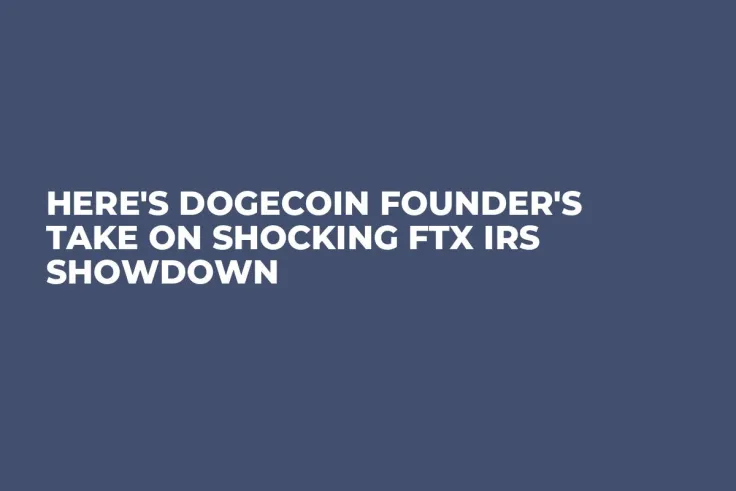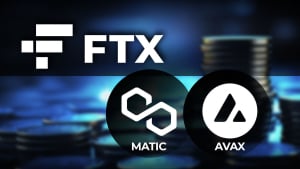
Disclaimer: The opinions expressed by our writers are their own and do not represent the views of U.Today. The financial and market information provided on U.Today is intended for informational purposes only. U.Today is not liable for any financial losses incurred while trading cryptocurrencies. Conduct your own research by contacting financial experts before making any investment decisions. We believe that all content is accurate as of the date of publication, but certain offers mentioned may no longer be available.
The recent tax spat between bankrupt crypto firm FTX Derivatives Exchange and the United States Internal Revenue Service (IRS) has attracted a comment from Dogecoin co-founder Billy Marcus. The spat between FTX and the IRS came when the tax regulator slapped the exchange with a $24 billion tax bill as it was unable to place a peg on the size of the fraud in the firm prior to its bankruptcy.
Reacting to the outrageous sum, the Dogecoin co-founder said the IRS cares more about getting their cut rather than prioritizing the victims of the scam. He went on to say that per current established trends, America is acting like it "hates its citizens."
This scorn, which the X owner Elon Musk responded to with the "Wow" exclamation is somewhat justified, seeing FTX is not liquid enough to cough out that amount of money. When FTX filed for bankruptcy, it was discovered that it had an about $8 billion hole in its balance sheet, a sum it has been doing all it can to recoup since November last year.
The exchange has gone through many hoops to recover about $7 billion worth of assets after recalling lavish donations made by the then-CEO, Sam Bankman-Fried (SBF).
Can FTX pay $24B?
Unlike many of its peers like BlockFi and Celsius Network, which went bankrupt last year, FTX is officially not out of bankruptcy yet, and it remains unclear what the rationale for issuing a $24 billion billing came from, a sum FTX might be unable to repay.
From the firm's financial struggles, there might be a new negotiation and sum to cover its tax billing as the exchange's priority, for now, entails repaying its creditors and ultimately its relaunch. The act of suing already bankrupt firms remains a volatile subject among industry stakeholders.
Many believe regulators taking advantage of firms in their most vulnerable state is not a patriotic move, as the Dogecoin founder insinuated.


 Dan Burgin
Dan Burgin U.Today Editorial Team
U.Today Editorial Team